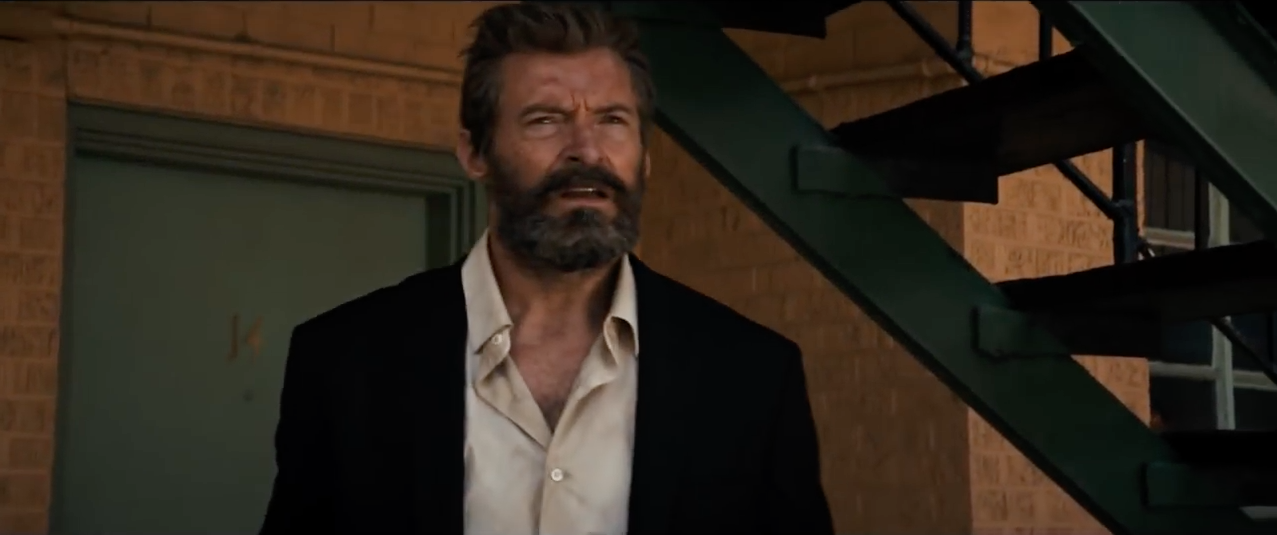It’s interesting to think that, while Marvel’s “American” Avengers are out saving the world (but still mostly America of course), Fox’s two current tent-pole characters, Deadpool and Wolverine, who are also both Canadian, seem less concerned with saving the world than fixing more immediate problems in their own lives. While I admit I’m a huge fan of what Marvel is doing with its own cinematic universe, it is hard to deny that the wrinkles of its formula is finally starting to show (though hopefully this will change in the Infinity Wars films).
Deadpool, on the other hand, shook up the superhero status quo by offering a raunchy R-rated comedy-hero flick that laughs in the face of its own cliché. But if Deadpool opened the door for critically and commercially viable R-rated superhero films, then the newly-released Logan has just kicked that door down.
Logan takes place in 2029, depicting a dystopian America where there has not been a mutant birth in 25 years, and as such the mutant population has all but diminished. Logan (Hugh Jackman), the man once known as Wolverine, is now an aging mutant due to his degenerating healing factor, the very thing that has made him practically invincible all these years. Logan works as a limo driver in Texas to provide care for a mentally deteriorating Charles Xavier (Patrick Stewart), whose inability to control his unparalleled telepathic abilities has made him immensely dangerous without the proper medication. Things change for the old friends when 11-year-old Laura (Dafne Keen) comes into their lives, who, to their surprise, is not only a mutant, but a direct clone of Logan. Logan and Charles then take it upon themselves to help Laura escape the clutches of the very people that created her, as they journey across America seeking a safe haven for her.
I have to start off by saying that Logan is unlike any other X-Men film that has come before, bearing more in common with Christopher Nolan’s The Dark Knight in terms of its darker tone and mature themes. But one of the things that truly sets Logan apart from any of its superhero contemporaries is just how uncompromising a film it is, from the coarse language and strong violence, to the emotional story arcs of its characters, longstanding or not. It doesn’t always have to provide simple answers, as director and co-writer James Mangold very wisely opts for subtle dramatic touches, understanding that actions speak much louder than words, and my, oh my, do Logan’s actions speak volumes.
This subtly partly stems from Mangold’s approach to the film’s genre, which feels like a dramatic Western road movie first, and a superhero film second (similar to the Marvel Netflix approach of genre-mixing). It reminded me more of John Wayne’s last film, The Shootist (or the classic Shane, which is referenced several times in the film), than it did of any X-Men, or for that matter, superhero film before. But it is Jackman’s brilliant performance as the jaded, damaged, reluctant hero that is central to the success of the film’s tone, while the performances of Keen and, in particular, the dynamic Stewart, are essential in grounding the film’s complex emotional core.
Ultimately, Logan is a great many things. It is a superb comic book adaptation, as well as an accomplished dramatic film all in its own right. But first and foremost, Logan is ground-breaking, and one of the greatest superhero films I have ever seen. It has proven that the superhero formula has much more to offer, and I can only assume that this film has paved the way for future films pursuing more mature subject matter, differing from what has become the same ol’ same of the genre. This is without question a most fitting send-off for one of the superhero genre’s most iconic characters, as well as one of the greatest casting choices in the history of superhero cinema. And to think, way back in 2000, Hugh Jackman was a last-minute stand-in for the role!






